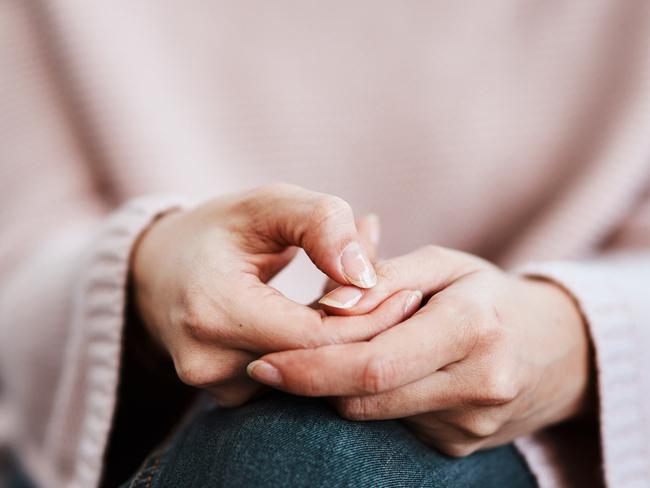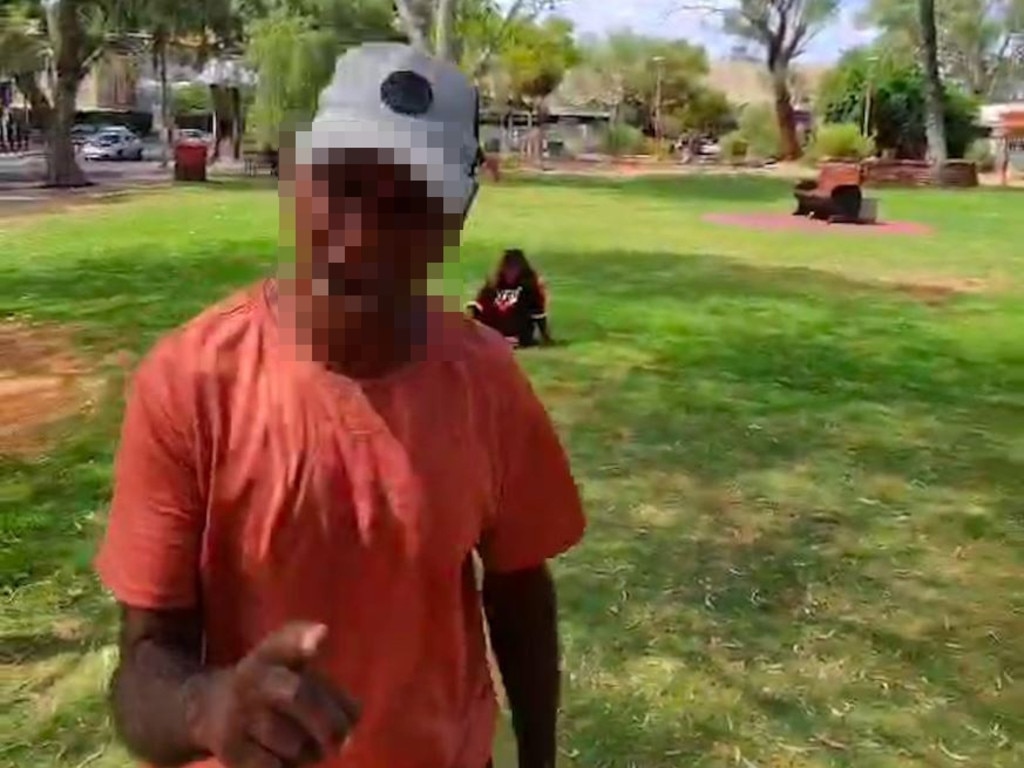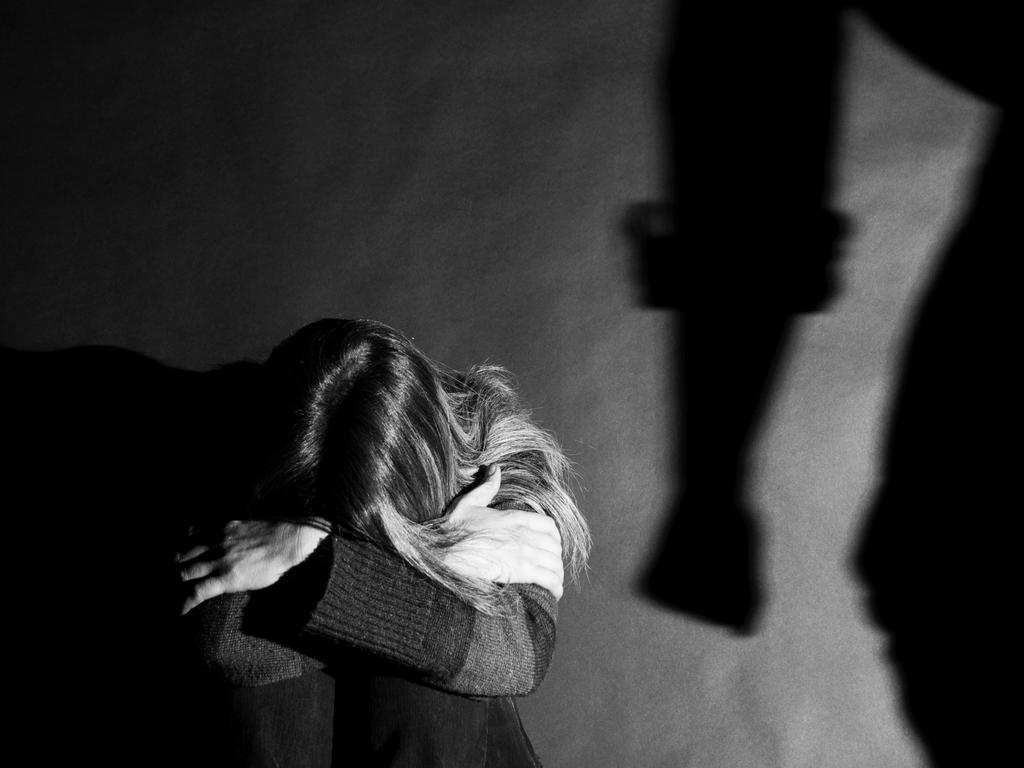
I stared at him, flinching a little as the words left his mouth. We weren’t talking about taking drugs or youthful misadventures. Rather, some friends and I were perched around a kitchen table, many moons ago now, dissecting the marriage breakdown of mutual friends. A couple we all knew and loved. She’d taken out an apprehended violence order, I said softly. Said he belted her. Then that response, without even hesitating: Yeah, but it was just once …
That conversation feels like a lifetime ago, when certain memories were still fresh, and people never really spoke about this stuff, not even close friends. Mostly never even family. Roughing up your missus, shoving her against a wall, maybe. Making threats about an accidental shove down the stairs and trying to pass it off as a joke.
This stuff stayed in the shadows.
You may think these words are an exercise in creative writing. I’m serious when I say they’re not. I’m just as serious when I tell you that in my 30-odd years of adulthood I’ve heard stories like these and more, listening white-faced and helpless, unsure of what to do, who to tell or where to go for help.
Why did you stay with him, I asked a friend who had confided in me about moments so horrific I struggled to process them as she spoke. They’d been away overseas and something made him angry. It was always something small. In a rage, he took her passport from her, tried to choke her. Why didn’t you run then and there, I asked. I love him, she said simply. I thought I could change him.
Thankfully, she got out not long after that conversation. She had somewhere to go and a degree of financial independence. Most women don’t.

This sort of stuff has stayed hidden in the shadows for so long. People turn the other way, look anywhere else, not because they condone it but, as with bereavement, most don’t know what to say let alone what to do and how to help. Moreover, there are few more powerful silencers than shame.
The shame felt by victims of domestic and family violence is not rational but it is devastatingly coercive in that it convinces a person that asking for help will make it worse. Or that speaking up about it will forever taint them, they’ll be seen as somehow a lesser woman. That it’s their fault. Shame whispers: Who’s going to believe you?
That night I’ve described was about a decade ago, probably more if I think about it. I was back there in an instant, though, when reading the scathing report this week that detailed the depth, scale and horror of domestic, family and sexual violence in the Northern Territory. Coroner Elisabeth Armitage rightly has described this as “our horror and our national shame”.
The murder of four women formed the basis of the investigation, though many others were also examined. This approach was taken due to threads common to each case – namely, years of systemic domestic violence while being engaged with frontline service workers. The coroner found that each perpetrator was boozed or stoned when he murdered his partner. Most of the victims were Indigenous women.
My mind shuttles between the then and now. Attempts to bridge the vast socio-economic chasm between the experience of women I know and those whose lives the coroner pored over, making her way through the weeds of worlds marked by abuse, disadvantage and societal neglect.
Don’t get me wrong, I’m not at all diminishing the experience of women who don’t live in regional or remote centres.
Abuse is abuse and the insidious nature of this problem doesn’t discriminate between rich and poor. Scratch the surface of Peppermint Grove, Double Bay and Toorak, and you’ll find family violence is no respecter of persons.
The only thing I would say is, to my knowledge (though it’s certainly not exhaustive), help is arguably more accessible in cities and communities that are less afraid of the conversation. That’s the challenge here. There aren’t too many of those communities and it’s our job to build them, to become them.
I’m also wrestling with this: What hope is there for women in the Northern Territory, especially First Nations women, when they are out of sight and out of mind?
Since the voice referendum was defeated, I’ve seen precious few people on the footpaths demanding better outcomes for Indigenous people. As Anthony Albanese told us after the vote failed, it wasn’t his loss. Not his problem.
We tiptoe around these weighty, confronting things. We window-dress them with things such as International Day for the Elimination of Violence Against Women, the brainchild of the hopelessly corrupt UN.
That is the same UN that shares a bed with the Islamic regime that rules under strict sharia law, in which violence against women is a man’s religious right. The same UN that had to be dragged kicking and screaming to accept the sadistic sexual violence committed against Jewish women on and following October 7 last year.
Pardon me if I’ve grown intolerant of its performative bullshit, the hubris of the UN, presenting as the world’s moral arbiter while politicising the organisation on an industrial scale.
Here at home, we’ll have workplace morning teas once a year, maybe post something on social media. All these things that never pull the weed up by its roots.
As a country, as a community, we have made material and meaningful progress in taking the shame away from discussions about mental health. What will it take to achieve that here? Conversations such as this one, perhaps?
For those haven’t read the coverage of Armitage’s report, I urge you to do so. You can’t deal with what you won’t face up to. And no, although it may not be in your backyard or mine, that doesn’t diminish our collective responsibility to turn back the tide.
Another thing we can and must do is significantly more confronting, requires more individual and collective bravery: that is to speak. Speak up.
For years, people hid behind “I don’t want to get involved”. Or: “It’s a private matter between them.” No, it’s not. Would you say that if you ignored your neighbour who was abusing their kid? Of course you wouldn’t. I’m not saying it’s a simple fix; if it were I’d be writing about something else. Maybe the tipping point for many will be the day this touches your own life in a personal way.
I pray that doesn’t happen and that we can all begin to act with the sense of urgency it demands.








It was just once, my friend said, as if he were talking about smoking a joint. Or doing something stupid in your teens and 20s.